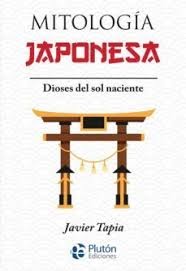
Original Language: Croatian
Títutulu Original: Harvest season
Translation: Jordi fulfilled Mora in Catalan for l’A Agulla daurada. No Spanish translation to date
Year of publication: 2023
Valoración: Alright
As it is not usually otherwise, Magdalena Blažević leads us again to those passages of warlike scars and, in this case, he does it with a deferred look in time, because the protagonist of the story, a young photographer, with the purpose of preparing an exhibition, returns to Desar and in that return he tells the desolation of a barely recognizable landscape affirming that “the views of the people have discouraged me. I don’t know if it exists. The forest has become rugged, has pounced from the heights to the courtyards and has occupied them as if it recovered the lost goods for a long time, has entered into the collapsed homes, the trees of the trees have drilled the ceilings and have come out through the windows instead of the people ». Thus, in a quite skillful and successful way, with that superposition of images that are formed in her mind, the author juxtapone present and past evidencing a contrast between two separate times, although emotionally linked.
In this way, the author uses the return of the protagonist and her attempt to portray an already desolate landscape to remember in each of those abandoned places the life that existed in them, the memories that transmit and lead him to an era where the war had not yet charged lives or segated future and that skillfully reflects that “all this region awaits only the coroner.” It is in those passages already deserted where the hire becomes evident and where the space is empty of beings and hopes. The author’s style is poetic and sad but not fully discouraging and invites reading with kind look even though the superstition of current moments with the past can create some confusion to the reader until one gets used to seeing two coincident stories although at the same time than separated by time. Like who uses increased reality glasses, the protagonist sees in those places the past stories that occurred in them and that transmit opposite sensations to the current ones, such as applying a filter of nostalgia to an already uninhabited and abandoned land by all except by those who still keep the memories of better times.
Structurally, the book consists of three very different parts, where in the first one, with the war as a backdrop, the story explains a love story between two lovers and does so from distance, a temporal but also sentimental distance by the return to a town changed for the course of war and abandonment. In those empty spaces where the author nourishes him of memories and past. Already in the second part the author tells the story of the protagonist’s mother, in an area and a time of war, of soldiers and abuses, of fear and terror, of survival and an infinite love towards her daughter, to whom she takes care of and protects as much as possible in a day to day in which fear besiered in the daily life of the area at war. Unfortunately, although this second part has a more fruitful scenario for the narration of bleak stories, the author fails to convey that anguish because of a somewhat unconnected and bad narrative with the first episode. Thus, there is hardly any connection between both parts of the book and the only thing that the narrative sustains (although not little) is the painful struggle of a mother and the protection towards her daughter. But we have read that before, it is not something new if you have a certain reader baggage. In a third (and brief) part that exercises only closing, the author ends the book returning again to the sensations found that we already had in her previous book, perhaps in this causing less impact due to the fragmentation of the story.
In any case, the story is sustained by the fragments in which the author succeeds in her exhibition, and touches the sensitive fiber of the reader who expects precisely this from a book of these characteristics, such as when one of the protagonists, looking at her beloved, confesses with sorrow that “I have asked myself if you would recognize in my face something you loved one day.” It is that forcefulness that one expects to find in these books, the aridity in a few words that drag years of war, desolation and hopelessness.
Source: https://unlibroaldia.blogspot.com/2025/05/magdalena-blazevic-el-temps-de-la.html


